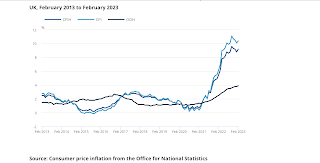Keep an eye on the vulnerable during Ramadan
As many British Muslims begin to plan for a month of fasting whilst they endure, reflect and build solidarity among fellow Muslim men and women, it is also a time to reflect on what has impacted this community in recent years and protect the most vulnerable moving forward.
Having grown up in a Muslim family, I can imagine many Muslims are beginning to prepare psychologically for a change in their routine where they refrain from eating and drinking between dawn and nightfall. As they break their fast they are going to consume extra sugar content.
The weather condition this year is a blessing due to shorter days and chilled temperatures. A few years ago one of my colleagues had to break his fast due to dehydration and exhaustion on an unbearable hot summer's day. Extreme heat can be a threat to many people’s lives. This is particularly the case when there are underlying health conditions and those who are elderly.
Living conditions & Muslims
Among many Muslims in Britain, we see high deprivation and health inequality. The latest census in 2021 shows that overall 61% of Muslims in England and Wales live in the lowest 40% of areas in the country ranked deprived. This may not be of surprise to anyone when there has been repeated reference to boroughs such as Tower Hamlet and Newham in the East End of London. These boroughs have a high Muslim population. Most of them are of Bangladeshi, Pakistani and Somali origin.
In terms of health inequality, according to National Aids Trust, the Muslim community in the UK has older people with over 24 percent of Muslims aged 50 years or above having reported poor or very poor health. This figure is double that of the total population.
Pandemic & Muslim lives
When Covid-19 hit Britain, many Muslims experienced a collective trauma like never seen
Cost of living for Muslims in UK
Having been shattered by the pandemic, many Muslims opened a new chapter where the focus is no longer on hospitalisation and death toll due to the virus.
Ramadan & vulnerability
Elderly Muslims are more vulnerable to health inequality, deprivation, the pandemic and fasting. Many of them will insist on fasting regardless of their underlying health conditions. The uptake of sugar content also needs to be monitored. It is our responsibility to make sure frail and elderly Muslims are not put at risk.



Comments
Post a Comment